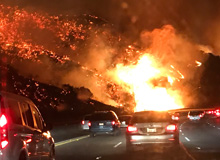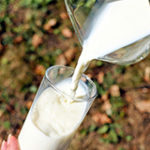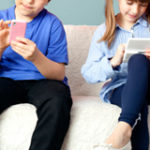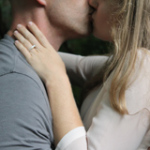Blog

We’re On Fire
I unpacked my suitcase today. But here’s the thing: I didn’t go anywhere, and never have I been more relieved to have stayed put. This year, as many in the past, has been fraught with its share of natural disasters — hurricanes in the east and south, earthquakes, volcanoes, and fires.
Fires have hit California hard this year — in Sonoma, and now in and around Los Angeles and San Diego. Fire season is nothing new in these parts — usually seen in the Fall and sometimes in the Spring, with unseasonable hot winds and dry air, fires are a known risk we as Californians take. And when we mean fire, we’re not talking about a kitchen fire, a fireworks fire, or even a chimney fire. These are decimation fires. Nothing is salvageable if a California wildfire hits your home. Nothing.
So when the several cell phones in our home buzzed a horrible shriek the other night in synchrony, we knew that a fire was close. Too close for comfort. The phone alert put us on “evacuation ready,” in that it was high likelihood that the winds would pick up that night, and we’d have moments to get out the door and get to safety. My husband and I told each of our two kids to pack a carry-on suitcase with two days worth of clothes. But then came the questions: “What about my karate certificates and my new “gi?” “I don’t want my school project to burn!” “And my stuffed animals!” My husband and I wandered around our house filled with too many books to count, photographs, paintings, and memories. We each silently packed what we could — he handed me our wedding album, a baby photo of each child (taken before the days when all was digital), and I scrambled to find a piece of jewelry from my mother, my grandmother, and my great-grandmother. I put on a nice watch, and we had dinner. More questions continued from our kids — mainly about where we would go, and what could they do to prevent our house from burning. And more questions about whether or not they could fit just one more book, photo, or trinket. “Everything we need is sitting at this dinner table,” we reminded our kids. Indeed.
While we adults listened to the wind gusts all night, picturing a flaming ash flying on to our roof, we had our small lot of belongings at the front door at the ready. We knew we couldn’t pack up a house. So we didn’t even try.
The night passed and we dodged a bullet. This time. We left our bags packed for four more days, and it’s funny what I found when I unpacked my small suitcase– too many pairs of running clothes, a few small boxes of sentimental memorabilia, including my daughter’s lock of hair from her first haircut. And contact lenses. That’s about it.
In the recent days, I’ve gotten myself quite an education on not only evacuation techniques (READY, SET, GO), but also what to do about all of the nasty smoke-filled air we’ve been breathing. Our local TV station asked me to come on set to talk about air quality, so I did a mini crash course in staying safe:
1. When our phenomenal first responders send an alert or order, do what they say.
2. The air quality is usually worse than it looks — www.airnow.gov gives us guidelines about air quality and safety based on zip code.
3. The only masks which really filter out particulate matter from smoke are the N95 and P100 masks. Surgical masks, wet bandanas, or dust masks don’t help.
4. Air conditioning is fine, but re-circulated air is better.
5. Staying inside is always better than being outside, unless it’s too hot in the house. Then neither is good.
We consider ourselves incredibly lucky. Many were not lucky in these ravaging fires– homes were destroyed, families were displaced indefinitely. Firefighters, police forces, emergency medical rescuers, and hospital emergency staff are never given enough credit for the heroic acts they do. As for us, we’re keeping our carry-ons and each other nearby, and I have extra sets of contact lenses.
For more information, go to:








